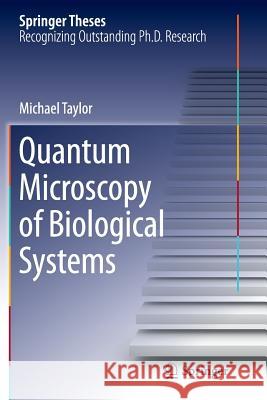Quantum Microscopy of Biological Systems » książka
topmenu
Quantum Microscopy of Biological Systems
ISBN-13: 9783319369488 / Angielski / Miękka / 2016 / 195 str.
Wydawca:
Springer
Seria wydawnicza:
Język:
Angielski
ISBN-13:
9783319369488
Rok wydania:
2016
Wydanie:
Softcover Repri
Numer serii:
000416125
Ilość stron:
195
Waga:
3.34 kg
Wymiary:
23.5 x 15.5
Oprawa:
Miękka
Wolumenów:
01
Dodatkowe informacje:
Wydanie ilustrowane











